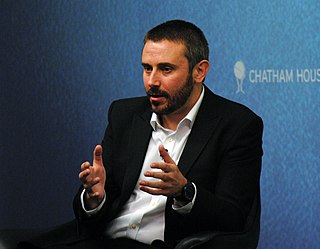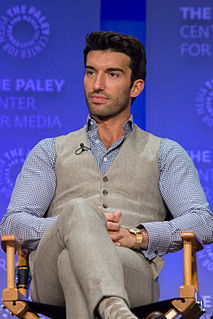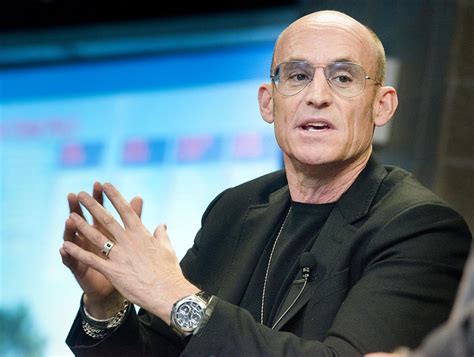A Quote by Clayton Christensen
If you want to make better theory, you've got to use the best that's available and look through the lens of another discipline to see if you can uncover more anomalies. By looking at the phenomena of failure from the perspective of sales, marketing, finance, general management, and the equity markets, I was able to see things that Rebecca [Henderson] hadn't.
Related Quotes
I found marketing to be highly descriptive and prescriptive, without much of a foundation in deep research. I brought in economics, organization theory, mathematics, and social psychology in my first edition of Marketing Management in 1967. Today Marketing Management is in its 15th edition and remains the world's leading textbook on marketing in MBA programs. Subsequently, I wrote two more textbooks, Principles of Marketing and Marketing: an Introduction.
What does reflect reality very well is complexity theory, which comes from physics. I'm the one pioneering the idea of bringing it to capital markets. When you look at capital markets through the lens of complexity theory, you ask "what's the scale of the system?" Scale is a fancy word for size. What measures are you using? If you look at total debt, the concentration of assets in the five largest banks, what percentage of the total assets of the five largest banks are interconnected? What you see is a very densely connected, fragile system that could collapse at any moment.
I've been living this extraordinary life with a new enlightened perspective, to see things from a higher perspective. I feel like I'm able to see things from that higher perspective at Impact Wrestling right now where there are unlimited opportunities and room for growth and to make some work I can really be proud of.
Because I didn't see war in Iraq through the partisan lens that seems to dominate a lot of the perspective today with Fox News on the one side and MSNBC on the other, I didn't see it as Democrats good, Republicans bad. I saw it as a situation where the United States is a force that engages in these military operations around the world, and it's the job of journalists to provide the American people with information they can use to make informed decisions.
You can put this another way by saying that while in other sciences the instruments you use are things external to yourself (things like microscopes and telescopes), the instrument through which you see God is your whole self. And if a man's self is not kept clean and bright, his glimpse of God will be blurred - like the Moon seen through a dirty telescope. That is why horrible nations have horrible religions: they have been looking at God through a dirty lens.
If the theory accurately predicts what they [scientists] see, it confirms that it's a good theory. If they see something that the theory didn't lead them to believe, that's what Thomas Kuhn calls an anomaly. The anomaly requires a revised theory - and you just keep going through the cycle, making a better theory.
Often in companies, you'll see tensions between sales and marketing. Sales people will want to give discounts to clients because they often get paid a commission based on how much they sell. So they're always pushing to give discounts because that will increase sales. Marketing, however, is judged by overall profitability.


































